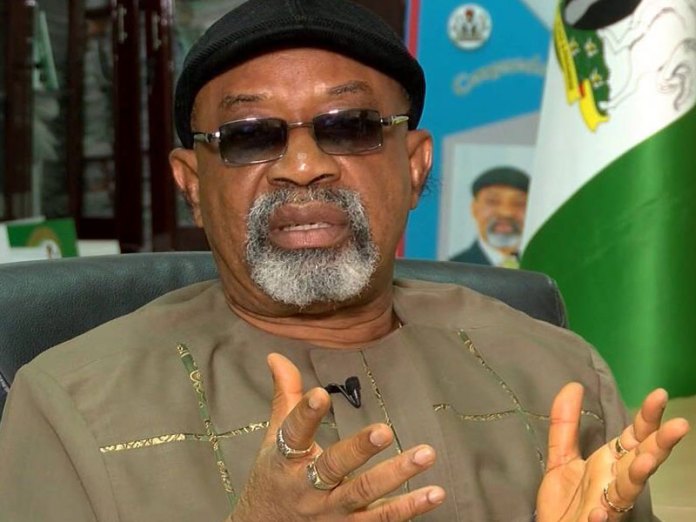- Fg Sees Nigeria’s Unemployment rate at 33.5% by 2020
The Minister of Labour and Employment, Sen. Chris Ngige, has stated that Nigeria’s unemployment rate of 23.1 percent could hit 33.5 percent by 2020 given the current situation.
The Minister, who declared open a two-day workshop on “Breaking the Resilience of High Unemployment Rate in the Country” in Abuja on Thursday, said the continuous rise in the nation’s unemployment rate was alarming.
According to the National Bureau of Statistics (NBS), Nigeria’s youth unemployment and underemployment combined stood at 55.4 percent of the total labour population in the third quarter of 2018, far above the national average of 43.3 percent.
“It is a worrisome status as the global poverty capital (World Bank, 2018); and concomitant high prevalence rate of crimes and criminality, including mass murders, insurgency, militancy, armed robbery, kidnappings, and drug abuse, among others.
“As if this situation is not scary enough, it is projected that the unemployment rate for this country will reach 33.5 percent by 2020, with consequences that are better imagined, if the trend is not urgently reversed.
“It is a thing of joy to note that Nigeria has not been resting on her oars over the years in terms of dedicated efforts to curb the unemployment problem,” he said.
The Minister also said since Nigeria gained independence in 1960 various social intervention programmes have been introduced to prop up new job creation, eradicate poverty and empower the youths.
Ngige further said available records showed that between 1972 to date, about 14 different programmes have been implemented. Some of the programmes were the National Accelerated Food Production Programme (NAFPP), implemented between 1972 and 1973. Others were the current National Social Investment Programme (NSIP) which has been ongoing since 2017, embedded in the National Economic Recovery and Growth Plan (ERGP) 2017-2020.
Still, the Minister wondered why there was no positive job creation trajectory for the youths and the nation at large.
This, he blamed partly on poor implementations and unanswered questions like: “What is government and other stakeholders not doing right?
“What changes are needed in the policies, plans and strategies? What action areas need priority attention? What roles should different stakeholders play and what other options are not being exploited?
“Why do we employ expatriates for jobs Nigerians can do or why can´t Nigerians do these jobs? Why do we have deficits in housing, water, sanitation, food, entertainment facilities, health care, and education, among others?.”

 Forex3 weeks ago
Forex3 weeks ago


 Naira2 weeks ago
Naira2 weeks ago
 Billionaire Watch2 weeks ago
Billionaire Watch2 weeks ago




 Naira2 weeks ago
Naira2 weeks ago




 Naira4 weeks ago
Naira4 weeks ago




 Naira2 weeks ago
Naira2 weeks ago


 Naira1 week ago
Naira1 week ago
 Banking Sector4 weeks ago
Banking Sector4 weeks ago






















